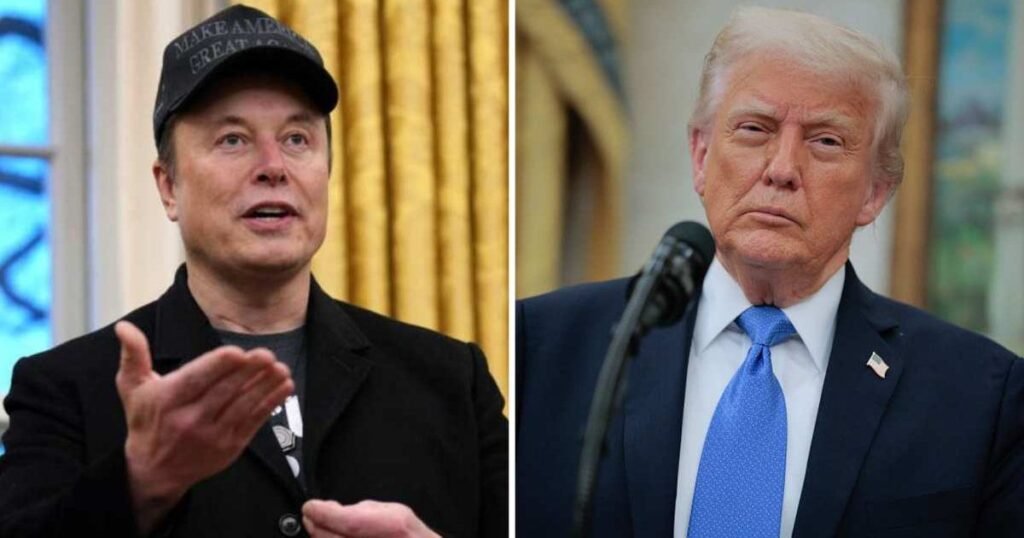Introduction
Tech billionaire and Tesla CEO Elon Musk has expressed his disappointment over former President Donald Trump’s latest tax and spending bill. Known for his bold opinions on economic and political matters, Musk criticized the legislation for what he sees as irresponsible fiscal policy that could harm innovation and economic growth in the long term. In this blog, we break down Musk’s concerns, analyze the bill’s content, and discuss its potential consequences for businesses, taxpayers, and the U.S. economy.
Overview of Trump’s Tax and Spending Bill
Donald Trump’s proposed bill includes a significant mix of tax cuts and government spending increases. Key highlights include:
- Tax Reductions for Corporations: A proposed rollback of corporate tax rates, aiming to stimulate business investment.
- Increased Defense Spending: A substantial boost in military budgets, adding hundreds of billions over the next decade.
- Cuts to Green Energy Subsidies: Reductions in federal support for clean energy and EV initiatives.
- Expanded Infrastructure Funding: Promises for increased spending on public infrastructure like roads, bridges, and broadband.
While supporters argue that the bill will boost economic activity and job creation, critics like Musk argue it may come at too high a cost.
Elon Musk’s Statement: A Warning Bell for Fiscal Responsibility
On social media platform X (formerly Twitter), Musk voiced his disapproval, stating:
“This bill is disappointing. More debt, fewer incentives for clean innovation. We can’t keep spending like this and expect long-term prosperity.”
Musk has long advocated for government policies that encourage innovation in clean technology and space exploration. His criticism centers on three main issues:
- Ballooning National Debt: The bill is expected to add over $2 trillion to the national debt over 10 years.
- Neglect of Clean Tech: Cuts to EV and renewable energy incentives directly affect industries Musk is deeply involved in.
- Short-Term Gains vs. Long-Term Vision: Musk emphasizes sustainable growth through innovation and warns that unchecked spending could trigger economic instability.
Impact on the Tech and Clean Energy Sectors
Musk’s disappointment isn’t merely personal—it reflects broader concerns within the tech and clean energy industries. Key consequences of the bill include:
- Reduced Support for Electric Vehicles: Tesla and other EV makers may lose tax credits, leading to higher costs for consumers and slower market adoption.
- Weakened Innovation Incentives: R&D tax breaks and subsidies are either limited or removed, discouraging future-focused ventures.
- Strained Investor Confidence: With fiscal uncertainty looming, private investment in high-risk, high-reward technologies could shrink.
Economic Experts Weigh In
Economists are divided on the bill’s effectiveness. While supply-side proponents argue tax cuts will lead to economic growth, others caution that:
- The U.S. deficit could rise to unsustainable levels.
- Inflation could worsen if spending outpaces revenue.
- The Federal Reserve may be forced to raise interest rates, impacting loans and mortgages.
Renowned economist Paul Krugman wrote:
“This bill may win short-term applause but undermines long-term economic stability. The rich get richer, while innovation gets sidelined.”
Political Reactions and Public Sentiment
Beyond Musk, several political leaders and industry voices have echoed concerns:
- Democrats oppose the bill’s corporate favoritism and environmental rollbacks.
- Republicans remain split, with fiscal conservatives wary of increased spending.
- Voters appear polarized, with a Pew Research poll showing 48% opposing the bill and 42% in favor.
Conclusion: A Critical Crossroads for U.S. Economic Policy
Elon Musk’s disappointment with Trump’s tax and spending bill isn’t just a billionaire’s gripe—it’s a signal of deeper issues in America’s approach to economic growth. As the nation stands at a crossroads between innovation-led progress and short-term political gains, the decisions made now will shape the economy for years to come.


